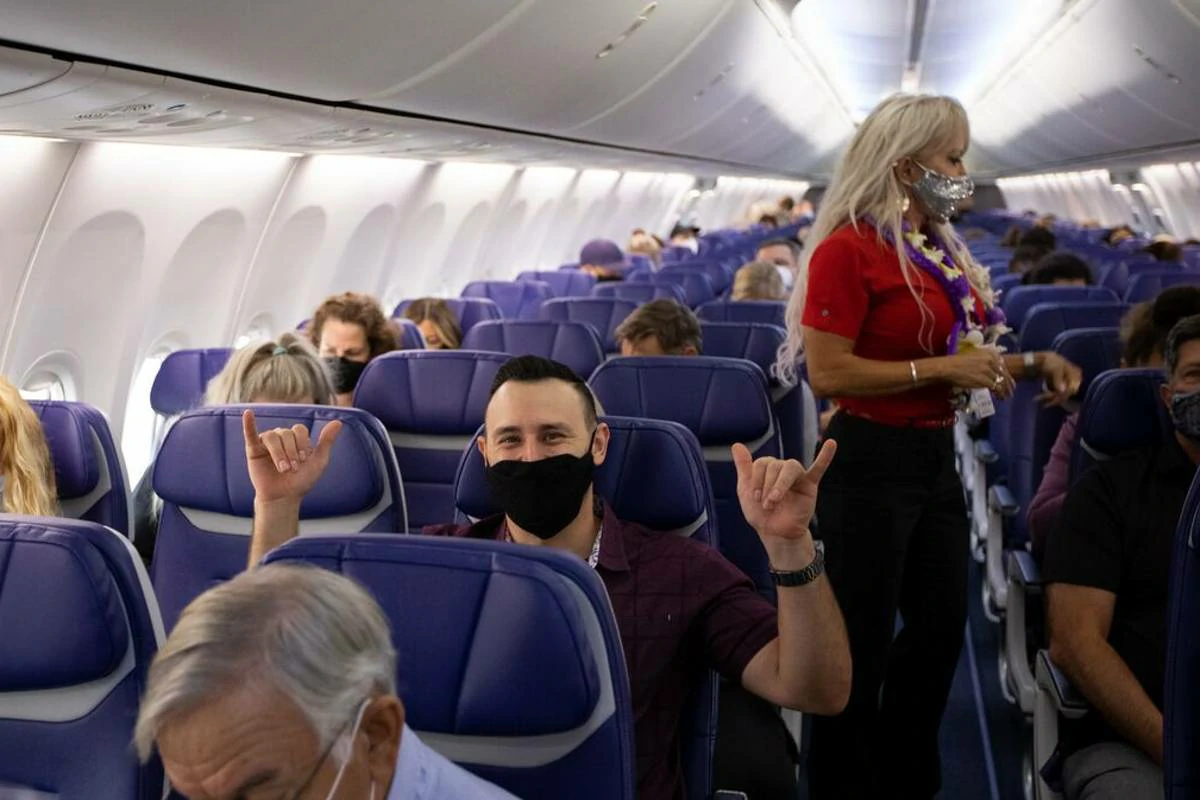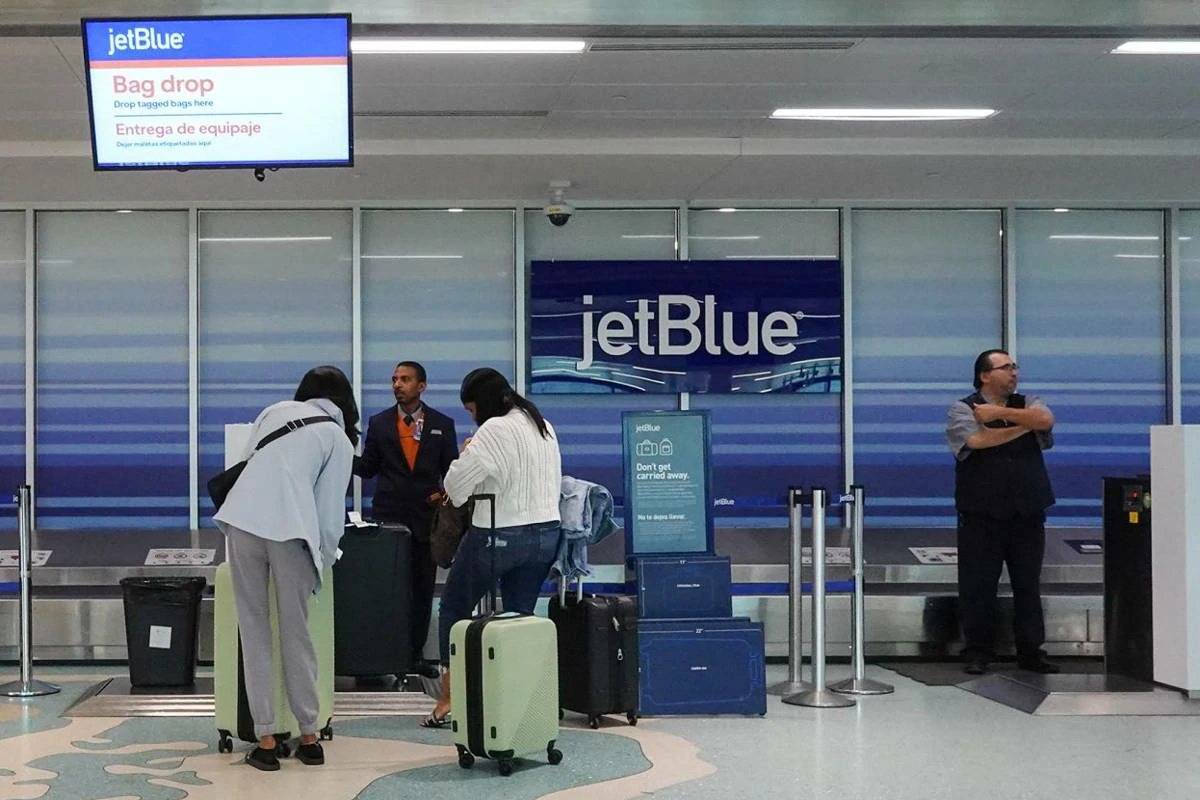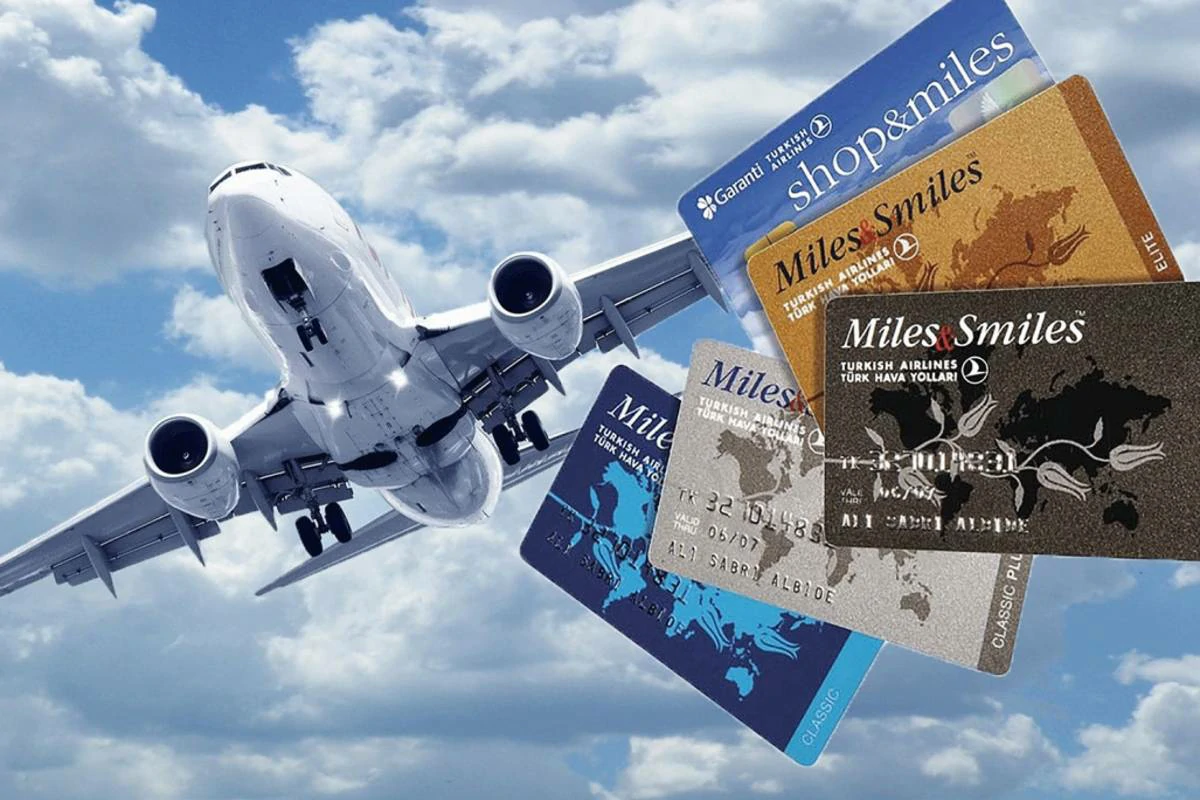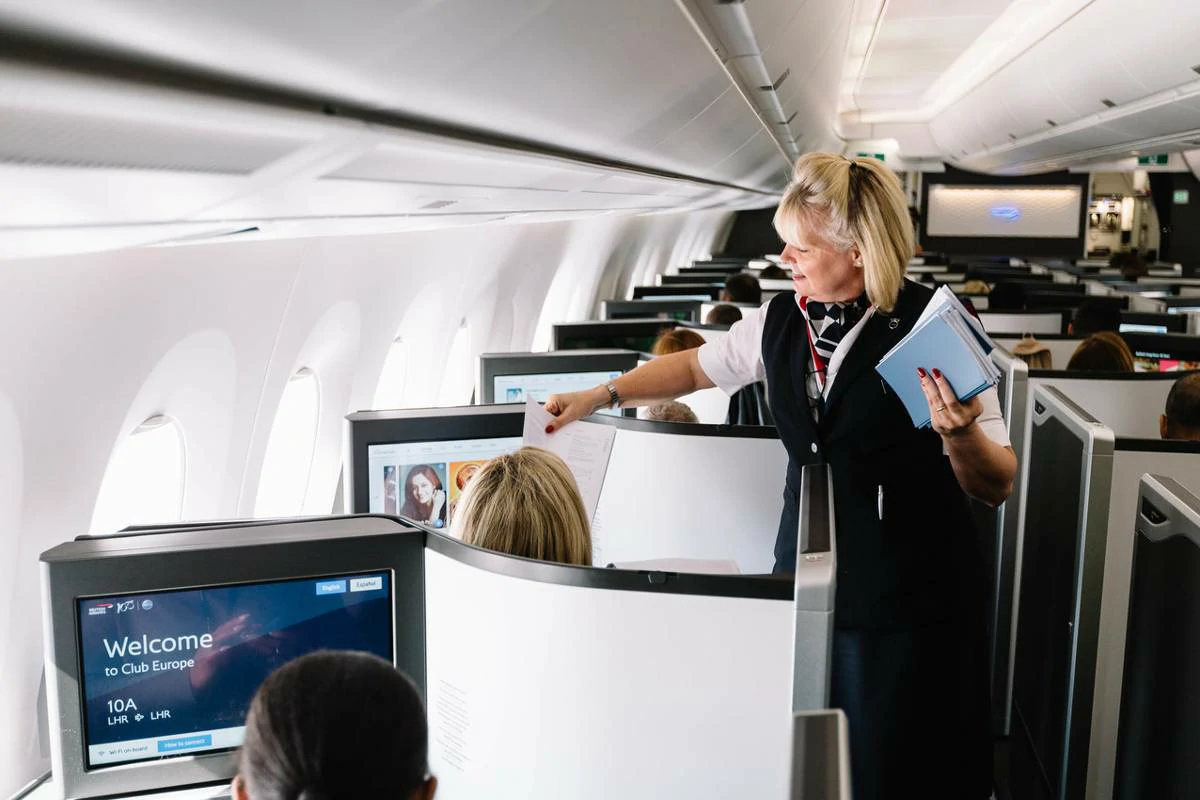How to travel cheap? Answer is – Traveling on a budget is achievable with careful planning and smart choices. Start by being flexible with your travel dates and destinations, considering off-season travel and lesser-known locations. Look for deals on flights and accommodations, utilize budget airlines, and consider alternative lodging options like hostels or home-sharing platforms. Pack light to avoid baggage fees, cook your meals instead of dining out, and take advantage of free activities and attractions. By implementing these strategies, you can explore the world without breaking the bank.
Summary
- Discover the secrets of budget travel planning and preparation.
- Learn how to find affordable flights, accommodations, and transportation.
- Explore strategies for saving money on food, activities, and entertainment.
- Uncover hidden gems and off-the-beaten-path destinations that won’t break the bank.
- Get inspired by real-life examples of budget-friendly travel adventures.
How to Travel Cheap

Why Travel Cheap?
In a world where wanderlust often clashes with financial constraints, the allure of budget travel shines brighter than ever.
Cheap travel isn’t just about pinching pennies; it’s about unlocking a world of experiences without emptying your wallet.
It’s about prioritizing value, resourcefulness, and the sheer joy of exploration over lavish expenditures.
As seasoned traveler and author Matt Kepnes, also known as Nomadic Matt, puts it, “Travel isn’t a luxury; it’s a necessity for the soul.”
Benefits of Budget Travel
Financial Freedom: By embracing budget travel, you liberate yourself from the financial burden that often accompanies traditional vacations. This newfound freedom allows you to travel more frequently and for longer durations, expanding your horizons and enriching your life with diverse experiences.
Resourcefulness and Creativity: Budget travel fosters resourcefulness and encourages you to think outside the box. You’ll learn to find creative solutions to challenges, discover hidden gems off the beaten path, and truly immerse yourself in local cultures.
Authentic Experiences: When you travel on a budget, you’re more likely to interact with locals, dine at family-owned restaurants, and stay in accommodations that offer a glimpse into everyday life. These authentic encounters create lasting memories and a deeper understanding of the places you visit.
Environmental Responsibility: Budget travel often involves minimizing your carbon footprint by opting for public transportation, staying in eco-friendly accommodations, and supporting local businesses. By traveling responsibly, you contribute to the preservation of the planet for future generations.
Common Misconceptions About Cheap Travel
Cheap Travel Means Sacrificing Comfort and Safety: This is a common misconception. While budget travel involves making conscious choices, it doesn’t mean compromising your well-being. Numerous comfortable and safe accommodation options cater to budget-minded travelers, and many destinations offer affordable transportation and activities.
You Need to Be a Backpacker to Travel Cheap: While backpacking is a popular way to travel on a budget, it’s not the only option. Budget travel encompasses various styles, from solo adventures to family vacations, and can be tailored to your preferences and comfort level.
Budget Travel Is Only for Young People: Age is no barrier to budget travel. Many retirees and older adults embrace this style of travel to make the most of their retirement savings and explore the world at their own pace.
Stephanie Zito Expert Opinion
According to travel expert Stephanie Zito, co-founder of the travel blog “Honeymoon Always,” “Budget travel is not about deprivation; it’s about prioritizing experiences and finding creative ways to make your travel dreams a reality.”
Planning and Preparation

Effective planning and preparation are the cornerstones of successful budget travel. By investing time and effort upfront, you can set yourself up for a financially savvy and enjoyable adventure. Here’s how to approach this crucial phase:
1. Setting a Realistic Budget
Before you even start dreaming about destinations, it’s essential to establish a realistic budget that aligns with your financial situation. Consider the following factors when setting your budget:
Transportation Costs: Research flight or train fares, local transportation options, and any potential car rentals.
Accommodation: Explore various options like hostels, guesthouses, home-sharing platforms, or camping to find the most affordable choices.
Food and Drinks: Estimate daily meal expenses based on local prices and your dining preferences. Consider cooking your meals to save money.
Activities and Entertainment: Research free or low-cost activities, such as visiting parks, museums, or attending local festivals. Allocate a budget for paid attractions that are high on your priority list.
Miscellaneous Expenses: Factor in costs like travel insurance, visas (if applicable), souvenirs, and emergency funds.
2. Choosing Your Destination Wisely
Your choice of destination can significantly impact your travel expenses. Consider the following factors when selecting a destination:
Cost of Living: Research the average cost of accommodation, food, and activities in different regions or countries.
Exchange Rates: If you’re traveling internationally, be mindful of exchange rates, as they can fluctuate and affect your purchasing power.
Travel Style: Consider your travel style and preferences. If you’re looking for a relaxing beach vacation, Southeast Asia or Central America might be more affordable than European destinations.
Off-the-Beaten-Path Destinations: Explore lesser-known destinations that offer unique experiences without the hefty price tag of popular tourist spots.
3. Traveling During Off-Season
Traveling during the shoulder seasons (the periods between peak and off-peak seasons) or the off-season can significantly reduce your travel costs.
During these times, flights, accommodations, and activities are often offered at discounted rates, and you’ll encounter fewer crowds, allowing for a more immersive experience.
4. Being Flexible with Your Travel Dates
Flexibility with your travel dates can open up opportunities for cheaper flights and accommodations. Consider traveling on weekdays or during less popular travel times to secure better deals.
5. Researching Free and Low-Cost Activities
Many destinations offer a plethora of free or low-cost activities that can enrich your travel experience without straining your budget. Research and create a list of these activities before you embark on your journey.
Examples of Free and Low-Cost Activities
- Walking Tours: Many cities offer free walking tours led by locals who share their knowledge and insights about the area.
- Parks and Gardens: Explore the natural beauty of parks and gardens, often free or with minimal entrance fees.
- Museums and Art Galleries: Many museums offer free admission days or discounted rates for students and seniors.
- Local Markets: Immerse yourself in the local culture by visiting bustling markets, where you can often find affordable souvenirs and delicious street food.
Finding Affordable Flights

Navigating the world of flight bookings can be daunting, but with the right strategies, you can uncover hidden gems and score incredible deals. Here’s how to find affordable flights that fit your budget:
1. Using Flight Comparison Websites
Flight comparison websites are your best friends when it comes to hunting down the cheapest fares. These platforms aggregate data from multiple airlines, allowing you to compare prices and find the most budget-friendly options. Some popular flight comparison websites include:
Google Flights: Offers a user-friendly interface with interactive maps and calendars to easily compare prices across different dates and destinations.
Skyscanner: Known for its “Everywhere” search feature, allowing you to find the cheapest destinations from your chosen departure point.
Momondo: Often uncovers hidden deals and lesser-known airlines that other platforms might miss.
Kayak: Provides a comprehensive search with flexible date options and price alerts.
2. Signing Up for Airline Newsletters and Fare Alerts
Stay ahead of the game by subscribing to airline newsletters and fare alerts. Many airlines offer exclusive discounts and promotions to their subscribers, and fare alerts notify you when prices drop on specific routes.
3. Considering Budget Airlines
Budget airlines often offer significantly lower fares than traditional carriers. While they might come with additional fees for baggage or seat selection, they can be a great option for short-haul flights or if you’re willing to travel light.
4. Flying on Weekdays or Red-Eye Flights
Flights during off-peak times, such as weekdays or red-eye flights, are generally cheaper than those on weekends or during peak travel periods.
If you’re flexible with your schedule, consider flying during these times to save money.
5. Packing Light to Avoid Baggage Fees
Baggage fees can quickly add up, especially if you’re flying on a budget airline. Pack light and only bring essentials to avoid these additional costs.
If you need to check a bag, consider packing heavier items in your carry-on to distribute the weight.
Nomadic Matt Expert Tip
Travel blogger Nomadic Matt advises, “Invest in a lightweight suitcase or backpack and learn to pack efficiently to save money on baggage fees.”
Accommodations on a Budget

Securing affordable accommodations is a crucial aspect of budget travel. Thankfully, a wide array of options cater to every traveler’s preferences and financial limitations.
Let’s explore some of the most popular choices:
1. Hostels: The Backpacker’s Best Friend
Hostels are a haven for budget-minded travelers, offering dormitory-style rooms and communal spaces at a fraction of the cost of traditional hotels.
While often associated with backpackers, hostels are increasingly attracting a diverse range of travelers seeking social interaction and affordability. Many hostels offer private rooms for those seeking more privacy.
Benefits of Hostels
- Affordability: Hostels offer the most budget-friendly accommodation option, with dorm beds often costing as little as $10 per night.
- Social Atmosphere: Hostels foster a vibrant social scene, making it easy to meet fellow travelers and forge lasting friendships.
- Amenities: Many hostels provide amenities like shared kitchens, laundry facilities, and common areas, adding value to your stay.
Jen Ruiz Expert Tip
Travel expert and author of “The Solo Female Traveler’s Handbook,” Jen Ruiz, recommends researching and choosing hostels with high ratings and positive reviews to ensure a comfortable and safe experience.
2. Home-Sharing Platforms: A Local Experience
Home-sharing platforms like Airbnb and Vrbo have revolutionized the way people travel, offering unique accommodations in homes, apartments, and even castles.
These platforms allow you to experience a destination like a local, often at a more affordable price than hotels.
Benefits of Home-Sharing
- Authenticity: Stay in local neighborhoods and experience the culture firsthand.
- Variety: Choose from a wide range of unique accommodations, from cozy apartments to sprawling villas.
- Amenities: Many home-sharing options offer amenities like kitchens, laundry facilities, and outdoor spaces.
3. Camping and Glamping: Embrace the Outdoors
For nature enthusiasts and adventurers, camping and glamping (glamorous camping) offer budget-friendly alternatives to traditional accommodations.
Pitch a tent in a national park, rent a cabin in the woods, or indulge in a luxurious glamping experience with all the comforts of home.
Benefits of Camping and Glamping
- Connection with Nature: Immerse yourself in the natural beauty of your surroundings.
- Affordability: Camping and glamping can be significantly cheaper than hotels or resorts.
- Unique Experience: Create lasting memories under the stars or in a cozy cabin.
4. Negotiating Hotel Rates: Tips and Tricks
While hotels might seem like a more expensive option, there are ways to negotiate better rates. Consider the following tips:
- Call the Hotel Directly: Negotiate with the hotel staff for a lower rate, especially if you’re booking for multiple nights or during the off-season.
- Look for Package Deals: Many hotels offer package deals that include accommodation, meals, and activities at a discounted price.
- Join Hotel Loyalty Programs: Earn points and rewards for future stays by joining hotel loyalty programs.
5. Alternative Lodging Options: Couchsurfing, House Sitting
For adventurous travelers seeking unique experiences, alternative lodging options like couchsurfing and house sitting can provide free or low-cost accommodations.
- Couchsurfing: Stay with locals for free and gain insights into the local culture.
- House Sitting: Take care of someone’s home and pets while they’re away in exchange for free accommodation.
Transportation Tips

Getting around your chosen destination doesn’t have to drain your travel funds. By embracing budget-friendly transportation options, you can explore freely while keeping your wallet happy. Here are some savvy strategies to consider:
1. Public Transportation: Buses, Trains, and Subways
Public transportation is often the most economical way to navigate a city or region.
Many destinations offer extensive networks of buses, trains, and subways that can take you to major attractions, local neighborhoods, and even neighboring towns.
Benefits of Public Transportation
- Affordability: Public transportation fares are generally much lower than taxi or ride-sharing services.
- Convenience: Many cities have well-developed public transportation systems with frequent departures and extensive routes.
- Local Experience: Riding public transportation allows you to interact with locals and observe daily life.
Rick Steves Expert Tip
Travel expert Rick Steves recommends purchasing a public transportation pass if you plan to use it frequently, as it can often save you money compared to buying individual tickets.
2. Renting a Bike or Scooter
In destinations with bike-friendly infrastructure, renting a bike or scooter can be a fun and affordable way to explore.
Many cities offer bike-sharing programs with convenient pick-up and drop-off locations.
Benefits of Renting a Bike or Scooter
- Affordability: Rental fees for bikes and scooters are typically lower than taxi fares or car rentals.
- Flexibility: Explore at your own pace and discover hidden corners of the city that might be inaccessible by car.
- Health and Fitness: Cycling or scootering is a great way to stay active while on vacation.
3. Walking and Hiking: Explore on Foot
For short distances or scenic routes, walking and hiking are not only free but also offer a unique perspective of your surroundings.
You can discover hidden gems, stumble upon charming cafes, and soak in the local atmosphere at a leisurely pace.
Benefits of Walking and Hiking
- Cost-Effective: It’s completely free!
- Immersive Experience: Engage with your surroundings and discover hidden details you might miss while traveling by vehicle.
- Health Benefits: Walking and hiking are excellent forms of exercise, allowing you to stay fit while on vacation.
4. Carpooling or Ride-Sharing: Save on Gas
If you’re traveling with a group or need to cover longer distances, consider carpooling or ride-sharing services like BlaBlaCar.
These platforms connect drivers with empty seats to passengers heading in the same direction, splitting the cost of gas and tolls.
Benefits of Carpooling and Ride-Sharing:
- Affordability: Share the cost of transportation with other travelers, making it a more economical option than renting a car or taking a taxi.
- Environmental Friendliness: Reduce your carbon footprint by sharing a ride and minimizing the number of vehicles on the road.
- Social Interaction: Meet new people and potentially make new friends during your journey.
5. Local Transportation Apps: Find the Cheapest Options
Many cities have local transportation apps that can help you find the cheapest and most efficient routes.
These apps often provide real-time information on public transportation schedules, fares, and even bike or scooter rentals.
Matthew Karsten Expert Tip
Travel blogger and author Matthew Karsten, known as Expert Vagabond, recommends using apps like Citymapper or Transit to navigate public transportation systems in unfamiliar cities.
Eating and Drinking for Less

Food is an integral part of any travel experience, but dining out for every meal can quickly deplete your budget.
Fear not, for there are plenty of ways to enjoy delicious and authentic cuisine without overspending. Let’s explore some budget-friendly culinary strategies:
1. Cooking Your Meals: Save Money and Eat Healthier
One of the most effective ways to save money on food while traveling is to cook your meals.
Many hostels and vacation rentals come equipped with kitchens, allowing you to prepare your breakfast, lunch, or dinner.
Benefits of Cooking Your Meals
- Cost-Effective: Groceries are generally much cheaper than restaurant meals, especially if you shop at local markets.
- Healthier Choices: You have control over the ingredients and can prepare meals that align with your dietary needs and preferences.
- Cultural Immersion: Cooking with local ingredients and trying out traditional recipes can be a fun and immersive cultural experience.
Jodi Ettenberg Expert Tip
“Cooking your meals doesn’t mean sacrificing flavor or variety. Explore local markets for fresh produce, spices, and other ingredients to create delicious and authentic dishes,” advises cookbook author and travel enthusiast, Jodi Ettenberg.
2. Street Food: A Delicious and Affordable Option
Street food is not only a budget-friendly option but also a fantastic way to sample local flavors and culinary traditions.
From savory tacos in Mexico to fragrant curries in Thailand, street food vendors offer a diverse range of delicious and affordable dishes.
Benefits of Street Food
- Authenticity: Street food often represents the heart and soul of a local cuisine, offering a true taste of the culture.
- Affordability: Street food is typically much cheaper than restaurant meals, making it an ideal option for budget travelers.
- Variety: Explore a wide range of flavors and dishes, often prepared with fresh, seasonal ingredients.
3. Local Markets: Fresh Produce at a Fraction of the Cost
Local markets are a treasure trove of fresh, seasonal produce, often at a fraction of the cost of supermarkets. Wander through colorful stalls brimming with exotic fruits, vegetables, spices, and other local delicacies.
Benefits of Local Markets
- Affordability: Local markets offer the freshest ingredients at the most competitive prices.
- Cultural Immersion: Interact with local vendors, learn about regional produce, and discover unique ingredients.
- Support Local Communities: By shopping at local markets, you contribute to the livelihoods of local farmers and vendors.
4. Happy Hour Deals: Drinks and Appetizers on a Dime
Many bars and restaurants offer happy hour deals with discounted drinks and appetizers.
Take advantage of these specials to enjoy a refreshing beverage or a tasty snack without breaking the bank.
Kristin Addis Expert Tip
“Happy hour is a great way to sample local drinks and appetizers at a fraction of the cost. Ask locals for recommendations or search online for the best happy hour deals in your destination,” suggests travel writer and photographer, Kristin Addis.
5. Picnics in the Park: A Scenic and Budget-Friendly Meal
Pack a picnic basket with fresh bread, cheese, fruit, and other local goodies, and head to a scenic park or garden for a delightful and affordable meal.
Benefits of Picnics
- Cost-Effective: Picnics are a budget-friendly alternative to dining out.
- Scenic Atmosphere: Enjoy your meal amidst beautiful surroundings, whether it’s a park, beach, or mountaintop.
- Relaxation and Connection: Picnics offer a chance to unwind, connect with your travel companions, and savor the moment.
Activities and Entertainment

Traveling doesn’t have to mean breaking the bank on expensive attractions and entertainment. In fact, some of the most memorable experiences are often free or low-cost.
Here are some ideas to maximize your fun while minimizing your spending:
1. Free Walking Tours: Learn About Your Destination
Many cities around the world offer free walking tours led by knowledgeable locals.
These tours provide a fascinating introduction to the city’s history, culture, and architecture, and often include insider tips on the best places to eat, drink, and explore.
Benefits of Free Walking Tours
- Local Expertise: Gain insights and recommendations from passionate locals who know the city inside out.
- Budget-Friendly: These tours are typically tip-based, allowing you to contribute what you feel the experience is worth.
- Social Interaction: Meet fellow travelers and make new friends as you explore the city together.
Kiersten Rich Expert Tip
Travel blogger and author of “The Blonde Abroad,” Kiersten Rich, recommends taking a free walking tour on your first day in a new city to get your bearings and discover hidden gems.
2. Museums with Free Admission Days
Many museums around the world offer free admission days or evenings, allowing you to explore their collections without paying a dime.
Check the museum’s website or inquire at the tourist information center to find out when these free days are offered.
Benefits of Museums with Free Admission
- Cultural Enrichment: Immerse yourself in art, history, science, or whatever piques your interest.
- Budget-Friendly: Take advantage of free admission to save money on activities.
- Educational Experience: Learn something new and expand your knowledge about the world.
3. Parks and Gardens: Relax and Enjoy Nature
Parks and gardens offer a tranquil escape from the hustle and bustle of city life.
Many are free to enter and provide a beautiful setting for a leisurely stroll, a picnic, or simply relaxing with a good book.
Benefits of Parks and Gardens
- Natural Beauty: Enjoy lush greenery, colorful flowers, and tranquil water features.
- Recreation: Many parks offer walking trails, bike paths, sports facilities, and playgrounds.
- Relaxation: Escape the crowds and find a peaceful oasis to unwind and recharge.
4. Local Festivals and Events: Immerse Yourself in Culture
Local festivals and events are a vibrant celebration of a destination’s unique culture and traditions.
From music festivals to food fairs to religious celebrations, there are often free or low-cost events happening throughout the year.
Benefits of Local Festivals and Events
- Cultural Immersion: Experience the local culture firsthand through music, dance, food, and traditional customs.
- Community Atmosphere: Join locals in celebrating their heritage and traditions.
- Unique Experiences: Witness colorful parades, captivating performances, and exciting competitions.
5. Volunteer Opportunities: Give Back and Travel for Less
For travelers seeking a more meaningful and immersive experience, volunteering can be a rewarding way to give back to the community while also saving money on accommodation and sometimes even food.
Benefits of Volunteering
- Making a Difference: Contribute to a cause you care about and make a positive impact on the lives of others.
- Cultural Exchange: Interact with locals, learn about their way of life, and gain a deeper understanding of the culture.
- Personal Growth: Develop new skills, gain valuable experience, and broaden your perspective.
Shannon O’Donnell Expert Tip
“Volunteering abroad can be a life-changing experience. Research reputable organizations and choose a project that aligns with your interests and skills,” advises travel blogger and volunteer advocate, Shannon O’Donnell.
Hidden Gems and Off-the-Beaten-Path Destinations

While popular tourist destinations often come with hefty price tags, venturing off the beaten path can lead you to hidden gems that offer unforgettable experiences at a fraction of the cost.
Let’s explore some budget-friendly destinations that are sure to ignite your wanderlust:
1. Eastern Europe: Affordable Adventures
Eastern Europe is a treasure trove of cultural riches, stunning landscapes, and affordable prices.
Countries like Bulgaria, Romania, Poland, and Hungary boast charming cities, medieval castles, and picturesque countryside, all without the crowds and high costs of Western European destinations.
Highlights of Eastern Europe
- Sofia, Bulgaria: The capital city of Bulgaria offers a fascinating blend of ancient history, communist-era architecture, and vibrant modern culture. Explore the Alexander Nevsky Cathedral, stroll through Vitosha Park, and indulge in delicious Bulgarian cuisine at local restaurants.
- Budapest, Hungary: Known for its thermal baths, stunning architecture, and lively nightlife, Budapest is a budget-friendly destination with plenty to offer. Don’t miss the Hungarian Parliament Building, the Fisherman’s Bastion, and the ruin bars in the Jewish Quarter.
- Krakow, Poland: This historic city is home to a well-preserved medieval old town, a vibrant Jewish quarter, and the poignant Auschwitz-Birkenau Memorial and Museum. Sample traditional Polish cuisine at local milk bars and explore the nearby salt mines.
James Taylor Expert Tip
Travel writer and photographer, James Taylor, recommends visiting Eastern Europe during the shoulder seasons (spring and autumn) to avoid crowds and take advantage of lower prices.
2. Southeast Asia: Backpacker’s Paradise
Southeast Asia is a perennial favorite among budget travelers, offering a unique blend of stunning natural beauty, rich cultural heritage, and incredibly affordable prices.
Countries like Thailand, Vietnam, Cambodia, and Laos boast tropical beaches, ancient temples, bustling cities, and delicious street food, all at a fraction of the cost of other popular destinations.
Highlights of Southeast Asia
- Bangkok, Thailand: This vibrant city is a sensory overload, with bustling markets, ornate temples, and a thriving street food scene. Explore the Grand Palace, Wat Pho, and the Chatuchak Weekend Market.
- Hanoi, Vietnam: The charming capital of Vietnam is known for its French colonial architecture, peaceful lakes, and delicious pho (noodle soup). Visit the Temple of Literature, wander through the Old Quarter, and take a day trip to Ha Long Bay.
- Siem Reap, Cambodia: Home to the magnificent Angkor Wat temple complex, Siem Reap offers a glimpse into the ancient Khmer Empire. Explore the temples, visit the floating villages on Tonle Sap Lake, and enjoy the lively nightlife in Pub Street.
3. Central America: Natural Wonders on a Budget
Central America is a paradise for nature lovers and adventure seekers, boasting lush rainforests, pristine beaches, active volcanoes, and ancient Mayan ruins.
Countries like Costa Rica, Guatemala, Belize, and Nicaragua offer incredible opportunities for hiking, wildlife watching, surfing, and diving, all at a fraction of the cost of other popular destinations.
Highlights of Central America
- Arenal Volcano National Park, Costa Rica: Hike through lush rainforests, soak in natural hot springs, and admire the majestic Arenal Volcano.
- Tikal National Park, Guatemala: Explore the ancient Mayan ruins of Tikal, a UNESCO World Heritage Site that dates back to the 4th century BC.
- Caye Caulker, Belize: This laid-back island is a haven for snorkeling, diving, and swimming with nurse sharks.
- Ometepe Island, Nicaragua: This volcanic island in Lake Nicaragua offers hiking, kayaking, and stunning views of Concepción and Maderas volcanoes.
4. Portugal: A Hidden Gem in Western Europe
Portugal is often overlooked by travelers in favor of its more popular neighbors, Spain and France.
However, this charming country offers a wealth of attractions, from historic cities and medieval castles to stunning beaches and rolling vineyards, all at a fraction of the cost of other Western European destinations.
Highlights of Portugal
- Lisbon: The capital city of Portugal is known for its colorful buildings, hilly streets, and melancholic fado music. Explore the Alfama district, ride the iconic Tram 28, and visit the Jerónimos Monastery.
- Porto: This historic port city is famous for its port wine, colorful riverside Ribeira district, and ornate Livraria Lello bookstore. Take a boat trip on the Douro River and sample the local cuisine at traditional tascas.
- Algarve: This southern region boasts stunning beaches, dramatic cliffs, and picturesque fishing villages. Relax on the golden sands, explore hidden coves, and indulge in fresh seafood at local restaurants.
5. Domestic Destinations: Explore Your Own Backyard
Don’t overlook the hidden gems and off-the-beaten-path destinations in your own backyard.
Many countries offer affordable travel options within their borders, from national parks and scenic drives to charming small towns and cultural festivals.
Benefits of Domestic Travel
- Affordability: Domestic travel often eliminates the need for expensive international flights and visas.
- Convenience: Explore destinations closer to home, saving time and money on transportation.
- Discovery: Uncover hidden treasures and unique experiences in your own country.
Real-Life Examples of Budget-Friendly Travel

Let’s dive into some real-life examples of travelers who have successfully embraced budget travel, proving that unforgettable adventures don’t have to break the bank.
1. Backpacking Through Southeast Asia for a Month
Anna, a budget travel enthusiast and founder of the blog “Global Gallivanting,” embarked on a month-long backpacking adventure through Southeast Asia, spending an average of $30 per day.
Her itinerary included exploring the bustling streets of Bangkok, trekking through the rice terraces of Sapa, relaxing on the beaches of Bali, and immersing herself in the ancient temples of Angkor Wat.
By staying in hostels, eating street food, and utilizing local transportation, Anna was able to experience the wonders of Southeast Asia without exceeding her budget.
2. Road Tripping Across the United States on a Shoestring Budget
Mike and Anne, a couple passionate about van life and budget travel, embarked on an epic road trip across the United States, covering over 10,000 miles in their converted camper van.
By camping in national parks, cooking their meals, and visiting free attractions, they were able to experience the diverse landscapes and cultures of America without breaking the bank.
3. Volunteering in South America and Traveling for Free
Sarah, a passionate advocate for sustainable travel and social impact, volunteered at a community project in Peru, teaching English to local children.
In exchange for her volunteer work, Sarah received free accommodation and meals, allowing her to explore the country and immerse herself in the local culture without incurring significant expenses.
4. Exploring Europe by Train with a Eurail Pass
David, a train travel enthusiast, embarked on a multi-country European adventure using a Eurail Pass.
This pass allowed him unlimited train travel across 33 European countries, providing a cost-effective and scenic way to explore diverse destinations.
David visited iconic cities like Paris, Rome, and Berlin, as well as charming towns and villages off the beaten path.
5. A Weekend Getaway to a Nearby City on a Dime
Emily, a budget-conscious traveler, planned a weekend getaway to a nearby city, proving that you don’t need to travel far to have an adventure.
She opted for a budget-friendly Airbnb, explored local parks and museums, and indulged in affordable street food, all while staying within her budget.
Alain de Botton Expert Tip
Travel expert and author of “The Art of Travel,” Alain de Botton, suggests that “The pleasure we derive from journeys is perhaps dependent more on the mindset with which we travel than on the destination we travel to.”
By embracing a mindset of curiosity, openness, and resourcefulness, you can find joy and adventure in even the most budget-friendly travel experiences.
Conclusion
As we’ve journeyed through the realms of budget travel, it’s evident that exploring the world doesn’t have to be a financial burden. With careful planning, smart choices, and a thirst for adventure, you can unlock unforgettable experiences without emptying your wallet.
From uncovering hidden gems in Eastern Europe to savoring street food in Southeast Asia, the world is brimming with affordable destinations waiting to be explored.
By embracing alternative accommodations, utilizing budget-friendly transportation, and seeking out free or low-cost activities, you can create a travel itinerary that is both enriching and financially responsible.
Remember, budget travel isn’t about sacrificing comfort or experiences; it’s about prioritizing value, creativity, and resourcefulness. It’s about immersing yourself in different cultures, connecting with locals, and creating memories that will last a lifetime.
FAQs
1. Is it possible to travel the world on a tight budget?
Absolutely! Many travelers have successfully explored the world on a shoestring budget. By following the tips and strategies outlined in this article, you can significantly reduce your travel expenses and make your travel dreams a reality.
2. What are the best resources for finding cheap flights?
Several online platforms can help you find affordable flights, including Google Flights, Skyscanner, Momondo, and Kayak. Consider signing up for airline newsletters and fare alerts to stay informed about the latest deals and promotions.
3. Where can I find budget-friendly accommodations?
Hostels, home-sharing platforms like Airbnb and Vrbo, camping sites, and even couchsurfing are all excellent options for budget travelers. Research and compare prices to find the best deals.
4. How can I save money on food while traveling?
Cook your meals whenever possible, explore local markets for fresh produce, indulge in street food, and take advantage of happy hour deals. Pack a picnic lunch for a scenic and budget-friendly meal.
5. What are some fun and free activities I can do while traveling?
Many cities offer free walking tours, museums with free admission days, and beautiful parks and gardens to explore. Look for local festivals and events, or volunteer your time to give back to the community while traveling.
6. What are some tips for traveling solo on a budget?
Solo travel can be incredibly rewarding, even on a budget. Consider staying in hostels to meet other travelers, join group tours or activities, and research safe and affordable destinations.
7. How can I travel sustainably on a budget?
Choose eco-friendly accommodations, utilize public transportation, pack light to reduce your carbon footprint, and support local businesses and communities. Consider volunteering for environmental projects or organizations.
8. What are some essential items to pack for budget travel?
Pack light and bring versatile clothing that can be mixed and matched. Don’t forget essentials like a reusable water bottle, first-aid kit, travel adapter, and a comfortable pair of walking shoes.
9. Is it safe to travel to off-the-beaten-path destinations?
While off-the-beaten-path destinations can offer unique experiences, it’s crucial to research and be aware of potential risks. Check travel advisories, read reviews from other travelers, and trust your instincts.
10. How can I make the most of my budget travel experience?
Embrace a mindset of adventure, curiosity, and openness. Be flexible with your plans, interact with locals, try new things, and most importantly, enjoy the journey!







